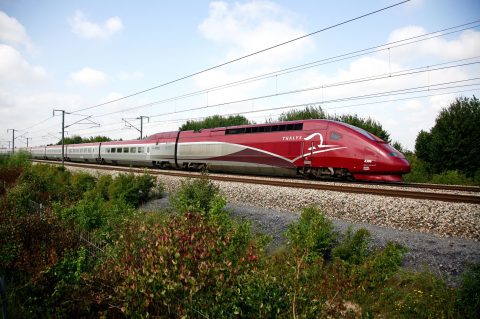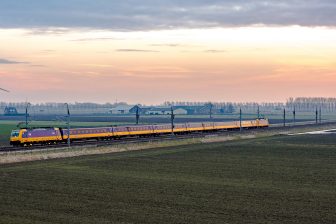
‘Thalys does nothing to reduce its costs’
COLUMN – Too often, the price of a ticket on an airline is cheaper than the price of a train ticket between similar cities. Airlines have a tradition to lure passengers by giving good services. State-owned train companies, on the other hand, have a reputation of being bureaucratic.
Want to read more?
You have read all of your free premium articles for this month. Please become a subscriber to keep reading.
Subscribe now!
Take advantage of our exclusive offer to get full access to all premium content.




Mr Kruyt is right in his conclusions about Thalys. And it is even worse. Mr Kruyt seems not to have travelled by Thalys for at least 18 months: with corona as an excuse bars on Thalys have been closed since March 2020.
DB has a more customer orientated policy on train catering,looking for possibilities to provide the passengers with drinks and food even under corona restrictions.
It is all part of the monopolist behaviour of Thalys.
Also 10 TGV daily from Brussels to France. Travel from Amsterdam would need a change at Brussels. The TGV departure at Brussels often is at the same minute xx:17 as the arrival of the Benelux ICD trains. These lose >10 minutes for a detour to Brussels airport, and a few more for the stop at Shiphol airport. Wait a full hour for connection at Brussels!
After detour to Lille, they head to Bordeaux, Nantes, Strasbourg, Marseille, Montpellier and Lyon, with Paris being served … at the airport!
Thalys is also burdened by the rather high prices for the French infrastructure. I think there are higher track access costs for international trains on French tracks than for inner-French trains (e.g. to Lille, just before Belgium).
Train paths to Paris are more expensive than French train paths that bypass Paris and are generally longer and require more stops to fetch a sufficient number of travellers. However, international routes to Paris are also longer and also fetch less passengers.
I don’t have the impression (valid for Pre-COVID-times) that Thalys could attract much more passengers (e.g. from planes) [e.g. via lower fares] as the Thalys trains had been quite occupied with not many empty places.
Manfred Treber, Germanwatch
@Joachim Falkenhagen: in pre-corona times Thalys offered direct services from Amsterdam to Marne la Vallée. With good connections to TGVs to Bordeaux, Rennes and Lyon. (some of them coming from Brussels) Cheaper and faster than changing in Brussels to the SNCF TGVs.
Why on earth does someone write an article like this? I don’t understand. Thalys train is allways sold out. I travel every now and than and I can’t get a ticket unless it’s like a month in advance. And the Tickets.are super expensive as well. So demand outpreforms supply x times over. There has to be some other hidden agenda behond this article…
Ah yes. The old “they should put people out of work to make MY ticket cheaper”. Very compelling.